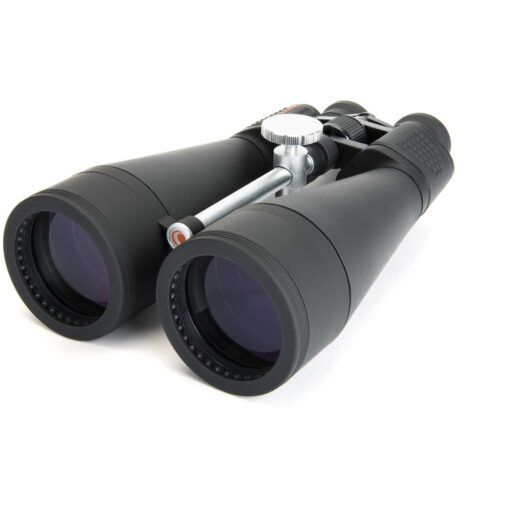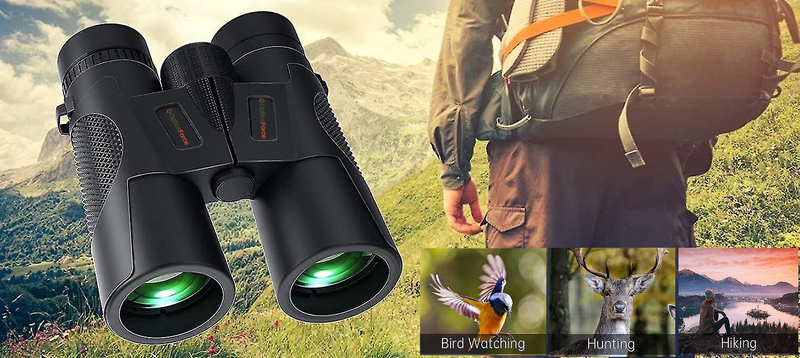Finest Tips for Choosing the Right Binoculars for Bird Enjoying
Finest Tips for Choosing the Right Binoculars for Bird Enjoying
Blog Article
The Importance of Field Glasses in Education And Learning and Scientific Study: How These Optical Instruments Add To Learning and Exploration
The assimilation of field glasses into academic settings and scientific study is usually neglected, yet their payment to enhancing observational abilities is substantial. These tools link the gap in between academic principles and useful application, permitting students and scientists alike to engage with their environments in a concrete manner. In disciplines varying from environmental science to astronomy, field glasses work as essential tools that promote query and vital reasoning. The wider effects of these optical devices on learning results and clinical exploration warrant further examination, particularly as we consider their prospective in shaping future scientific ventures.
Enhancing Observational Abilities
In academic and study settings, making use of field glasses substantially improves empirical abilities among students and specialists alike. These optical instruments promote a much deeper understanding of far-off subjects, making it possible for users to observe information that would certainly otherwise stay undetected. By utilizing binoculars, students can examine wild animals, expensive sensations, and geological developments, promoting a much more profound link to the subject.
Field glasses act as vital tools in field researches, urging students to engage actively with their atmosphere. With enhanced monitoring, they can gather information better, leading to enhanced logical abilities. This hands-on experience enables the advancement of vital reasoning, as pupils need to translate what they see and associate it to theoretical knowledge.

Bridging Concept and Method
Empirical abilities developed via the usage of binoculars normally result in a more profound integration of theoretical knowledge with sensible application. By participating in direct observation, students can transform abstract principles into tangible experiences. This harmony cultivates a much deeper understanding of scientific principles as pupils connect theoretical frameworks with real-world sensations.
For instance, when researching bird biology, pupils can apply their expertise of bird makeup and behavior through the lens of field glasses, observing traits such as plumage variant, feeding practices, and migratory patterns. This direct interaction not just reinforces theoretical ideas however additionally cultivates important reasoning and logical abilities.
Additionally, using field glasses urges learners to develop hypotheses based upon their observations, thereby enhancing their clinical questions skills. They can proactively test these hypotheses in the field, bring about a much more experiential knowing environment that promotes curiosity and expedition.
Fundamentally, field glasses serve as a vital device in connecting the gap between class understanding and fieldwork - Binoculars. They equip trainees to come to be energetic individuals in their education and learning, urging an alternative method to recognizing the all-natural globe and its complexities. Therefore, the integration of concept and technique is essential for cultivating informed and engaged students
Applications in Environmental Science
Using binoculars in ecological science improves the ability to observe and assess communities with higher accuracy. These optical tools are essential for performing field research studies, making it possible for scientists to check wild animals populations, evaluate plant wellness, and examine environment conditions without disturbing the natural environment. Field glasses facilitate the identification of varieties at various distances, enabling researchers to gather essential data on biodiversity and actions.
In eco-friendly research study, field glasses are indispensable devices for ornithologists researching avian actions and movement patterns. They make it possible for researchers to record monitorings over extended periods, adding to valuable longitudinal research studies - Binoculars. Additionally, binoculars play an important duty in habitat analyses, as they enable the thorough observation of plant neighborhoods and their interactions within communities
Environmental educators also take advantage of field glasses, as these instruments enhance experiential learning you can look here possibilities. Pupils can involve directly with their surroundings, promoting a much deeper admiration for eco-friendly useful site systems. By integrating binoculars into instructional programs, instructors can motivate the following generation of ecological scientists.
Function in Astronomy Education
The use of field glasses in astronomy education and learning provides an easily accessible gateway for students and fanatics to check out holy phenomena (Binoculars). Unlike big telescopes, field glasses are portable, easy to use, and relatively affordable, making them a perfect introductory device for observing the evening skies. Students can quickly engage with the universes, fostering a hands-on understanding experience that boosts their understanding of huge principles
Field glasses enable customers to observe a selection of holy items, including the Moon, worlds, and galaxy. This ease of access motivates expedition and observation, important components of scientific query. Students can create critical abilities such as information collection, observation strategies, and even standard astrometry. Importantly, binoculars act as a bridge to a lot more complicated expensive tools, offering foundational experiences that can spark deeper interest in the area.
In instructional settings, directed binocular sessions can promote team cooperation and conversation, boosting the finding out experience. The common experience of observing celestial objects can grow a feeling of community among learners. Overall, binoculars play a vital role in debunking astronomy, making it approachable and appealing for individuals in all degrees of education.

Inspiring Interest and Inquiry
Field glasses not only facilitate the observation of celestial sensations however additionally spark a sense of curiosity and questions amongst pupils. By providing a better consider far-off items, field glasses urge students to ask concerns and check out the setting around them. This tool changes easy understanding into an active, engaging experience, promoting a much deeper understanding of clinical principles.
When students make use of binoculars to observe wild animals, landscapes, or astronomical objects, they establish empirical skills that are essential for scientific inquiry. The act of focusing on certain information triggers them to create hypotheses, carry out examinations, and reason based on their observations. This procedure not only boosts their crucial assuming capacities however also nurtures a lifelong passion for expedition.
In addition, binoculars can bridge the space between theoretical knowledge and real-world application. As trainees observe phenomena firsthand, they can link classroom learning to sensible experiences, making education a lot more look at here now relevant and significant. Inevitably, using binoculars in academic settings works as a driver for inquisitiveness, equipping students to go after knowledge with interest and promoting a feeling of marvel about the globe around them. By doing this, field glasses play an essential role in inspiring future generations of scientists and thinkers.
Conclusion
In recap, field glasses work as essential tools in education and scientific research, substantially improving observational skills while connecting the space in between academic knowledge and functional application. Their varied applications in fields such as environmental scientific research and astronomy highlight their significance in cultivating interest and query amongst pupils. By assisting in in-depth assessments of far-off subjects, binoculars not only influence the future generation of scientists but also grow an extensive appreciation for exploration and the scientific approach.
Report this page